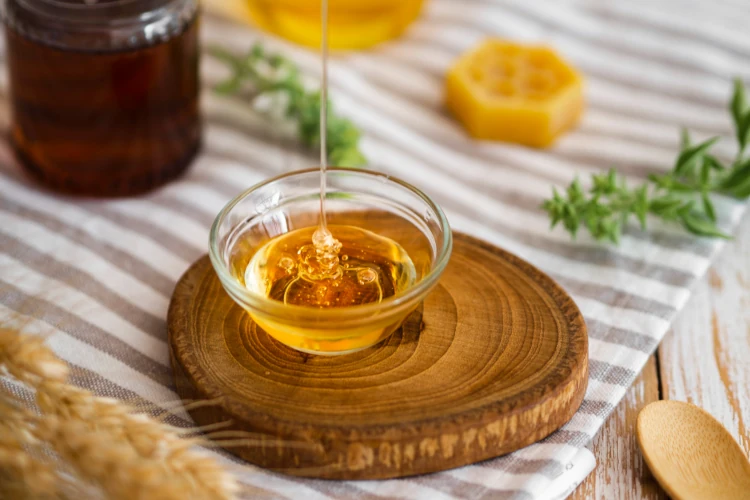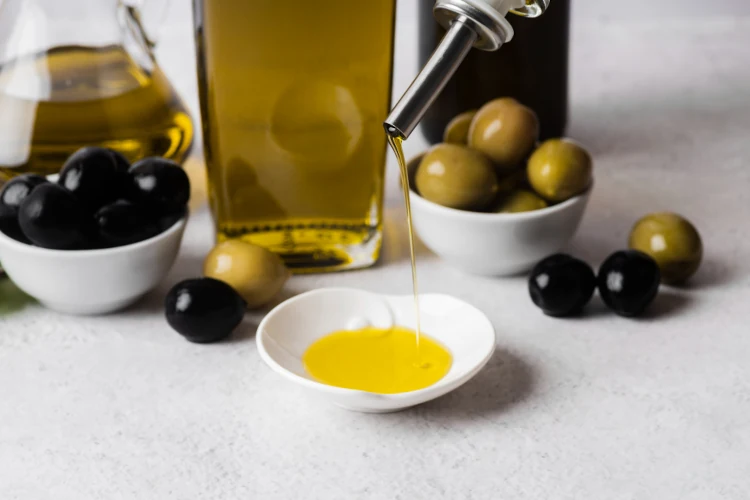Some of the guidance that Allah has provided regarding diet includes the following from the Qur’an:
- “Then eat from what Allah has provided for you which is lawful and good (ḥalalan ṭayyiban). And be grateful for the favor of Allah…” (Qur’an 16:114)
- “O you who believe, eat from the good and lawful (ṭayyib) provisions We have provided for you and be grateful to Allah if it is Him that you worship.” (Qur’an, 2:172)
- “And there is certainly a lesson for you in cattle: We give to drink of what is in their bellies, from between digested food and blood: pure milk, pleasant to drink.” (Qur’an 16:66)
- “He it is Who made the sea of service that you might eat fresh (fish) meat from it.” (Qur’an 16:14)
- “And the meat of fowls of what they like.” (Qur’an 56:21)
The first two verses use the words ḥalal and ṭayyib to describe what Allah has commanded us to eat. Ḥalal means that which is permissible according to Islamic law and includes meat that is slaughtered accordingly as well as non-animal foods that Allah has created such as vegetables, fruits, grains, nuts, legumes, and natural beverages. It excludes certain types of forbidden foods, such as pork, carrion, and alcohol.
Ṭayyib is a very comprehensive word in Arabic that has a great place in the Qur’an and Sunnah. Ṭayyib comes from the tri-letter root word for ṭaa-ya-ba, which means to be good, pleasant, agreeable, lawful. The word ‘ṭayyib’ means what is good, clean, pure, wholesome, gentle, excellent, fair, and lawful.
Prophet Muḥammad (S) advised, “O people, Allah is Ṭayyib and only accepts that which is Ṭayyib…” (Musnad Imam Aḥmad bin Ḥanbal)
Ṭayyib, therefore, includes the pure, good, wholesome, lawful foods that Allah has created for humankind in the form of natural fruits, vegetables, livestock, nuts, whole grains, and more. However, there is a higher standard for being Tayyib which extends beyond Halal.
Many Muslims also fail to realize another significant implication of the Qur’anic injunction to only eat what is ṭayyib. Ṭayyib, meaning pure, good, and wholesome food from Allah, technically does not include synthetic chemicals added to food, nor does it include genetically modified food. The following is a partial list of some of the chemicals we find in our food today:
Artificial Food Colors
Artificial Sweeteners
BHA, BHT
Refined White Sugar
Sulfates/ Sulfites
Nitrates/ Nitrites
Sodium Benzoate
Sulfur Dioxide
Benzoate
Mono Sodium Glutamate
High Fructose Corn Syrup
Polysorbate 80
Hydrogenated Oil
Herbicides
Pesticides
Trans Fatty Acids
Parabens
How can you reconcile such chemical additives with the ṭayyib foods that Allah has already bestowed us? The health risks of such synthetic chemicals are very potent and have been researched extensively.1 These risks are analogous to slow poisons that are not very obvious in the short term but accumulate over time. Even the common assumption that chemical additives and genetically modified food offer increased yield, drought and insect resistance has been challenged when you consider the data collected over the last few decades and when you consider the horrible costs to the environment and to human health.2
Allah reminds us in the Qur’an that:
“As for the earth, we spread it out and placed upon it firm mountains, and caused everything to grow there in perfect balance.” (Qur’an 15:19)
There is a perfect balance between nutrients, sunlight, water and more that Allah has created in order for crops to grow and flourish. Even among the nutrients there is a ratio of nutrients like nitrogen, phosphorus and potassium that is necessary for optimal growth. Agricultural scientists know that chemicals like pesticides, insecticides, and herbicides disrupt the soil ecosystems and the environment at large.3 Soil microbes play a crucial role in that they make nutrients available for plants, produce plant growth hormones, suppress harmful pathogens and parasites, and even increase plant resistance against stressors. If we isolate just the detrimental effects of insecticides on soil microbes, we realize that a cascade of reactions that disrupts the soil ecology and the health of human consumers is triggered by this single chemical intervention.
We realize that it is almost impossible to completely avoid all of these chemicals in the modern world, and our purpose here is not to issue fatwas or Islamic rulings regarding such issues. Nonetheless, it behooves all of us to seriously ponder what we are putting in our bodies and at the very least, try to minimize exposure to such chemicals and genetically altered foods.
References:
1. Arora, Sumitra (2019 ). Pesticide Risk Assessment. CAB International, Boston MA. ;
Sachs, Dr. Harrison. (2020). Why GMO Foods Are Deadly To Eat, The Ramifications Of Consuming GMO Foods, How To Avoid Consuming Genetically Modified foods, Deadly Disease Causing Foods That You Should Always Shun Consuming, And How To Mitigate Risks For Succumbing To Chronic Diseases. Published by Dr Sachs;
American Cancer Institute, https://www.cancer.gov/about-cancer/causes-prevention/risk/diet/artificial-sweeteners-fact-sheet; https://www.globalresearch.ca/over-40-rodent-feeding-studies-show-genetically-modified-food-is-disastrous-to-health/5481036;
2. Zhang, L. et al. (2019). Exposure to Glyphosate-Based Herbicides and Risk for Non-Hodgkin Lymphoma: A Meta-Analysis and Supporting Evidence. Mutation Research/Reviews in Mutation Research, DOI: 10.1016/j.mrrev.2019.02.001
3. Aktar, M. W., Sengupta, D., & Chowdhury, A. (2009). Impact of pesticides use in agriculture: their benefits and hazards. Interdisciplinary toxicology, 2(1), 1–12.
Other Articles
Hijamah Mechanism- Taibah Theory
https://www.researchgate.net/publication/327810434_Taibah_mechanism_Taibah_Theory
How Islam Changed Medicine By Azeem Majeed
https://pmc.ncbi.nlm.nih.gov/articles/PMC1322233/
The Air of History Part III: The Golden Age in Arab Islamic Medicine- An Introduction By Rachel Hajar https://pmc.ncbi.nlm.nih.gov/articles/PMC3621228/


